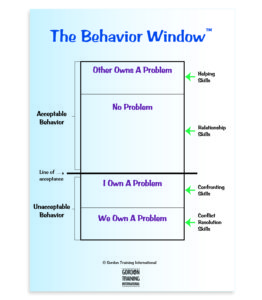Say Ah: We’re going in for a deep probe and cleaning.
How is mental health like dental health? You may be tempted to say “not at all,” but grab that fourth cup of black coffee that makes your regular hygienist scowl—we’re going in.
1. Both Start with Basic Skills and Routine Maintenance.
This goes without saying: If a first dental visit doesn’t happen (for whatever reason) until you’ve entered the workforce in your teens or twenties, you’ve already fallen far behind in baseline dental health–especially if you’ve never met a toothbrush or a string of dental floss before. Unless you were born with supernatural enamel, you’ll have a mouthful of corrective work that needs to be done before you can catch up to the rest of the world.
Likewise, if you arrived at Planet Workplace (like most people) lacking a solid foundation of no-lose problem-solving skills (like most people), you might not even know you have a figurative mental mouthful of broken, snaggly teeth doing unnecessary damage to relationships at work, undermining success and causing unnecessary stress to team members and partners.
The sooner a new functional baseline gets established, the better for everyone.
2. Prevention Is Less Painful than Correction
Dental health employs routine exams, cleanings and minor defect repair to stave off more serious issues, like gum disease and tooth failure, which can erode the whole jaw’s alignment and the foundation in which the teeth are held.
In a similar vein, organizational mental health is seated in relationships, which in turn are seated in respectful, honest, non-blameful communication practices at all levels. This kind of communication, focused on problems (not people/personalities) doesn’t happen by accident; it is designed as intentionally as the product or service, and is grounded in awareness, knowledge, practice, and skills.
3. Early Intervention Is Critical
Toothaches don’t resolve themselves. “Ignore it and it’ll go away” is a terrible approach to dentistry; if a sore mouth issue disappears, that’s bad. It means the tooth root nerve has died and the infection is spreading. The only way to save the aching tooth is to get in there while it’s still in pain and treat it.
The same thing is true in an organization displaying the signs of people problems—mental hygiene issues. It’s entirely possible to get into the people problem pockets and that are collecting all those unproductive irritants and causing corrosive effects. They can be treated once they’ve been diagnosed—there are advanced intervention tools for just about every kind of malady.
4. The Critical Role of Trained Professionals
Some things are best practices for a reason: We cannot and do not attempt self-dental surgery for reasons that seem obvious. We do not pretend we can successfully perform psychotherapy on ourselves, again, for reasons that seem perfectly clear.
And yet some organizations do try to make changes to their communication and workflow procedures from the inside, using top-down power—often making things worse, not better. (We have our eyes fixed squarely on you right now, Twitter.)
Then there’s the issue of cosmetic treatment versus structural health. Sure, it’s easier and cheaper to slap some white strips over your stained chompers rather than getting deep cleanings every six months. But is that the best long-term approach?
Is the optimal solution to interdepartmental feuds, constant turnover, and employee dissatisfaction really a four-hour sensitivity workshop or a mandatory lunchtime motivational speaker (nothing says “motivation” like “You Have To Be Here”?) Or is it a complete exam and treatment for the core issues?
5. Schedule a Check-Up or Deep Cleaning
For 60 years, Gordon Training has been working with groundbreaking, forward-thinking organizations to deliver organizational mental hygiene that accelerates growth and reduces creative friction and pain.
We can come to you, deliver remotely, or you (and your leaders) can become your own company’s certified mental hygienists.
Get certified in L.E.T. and start your own program of prevention, early intervention for more dazzling smiles in the workplace.

